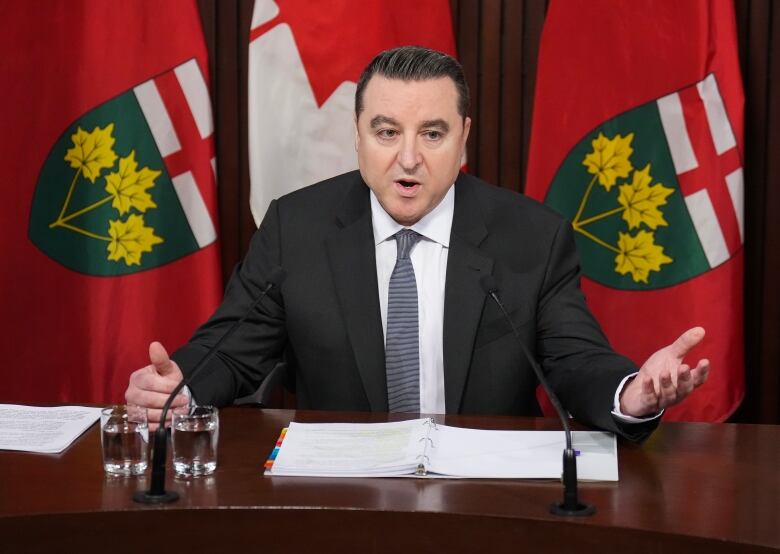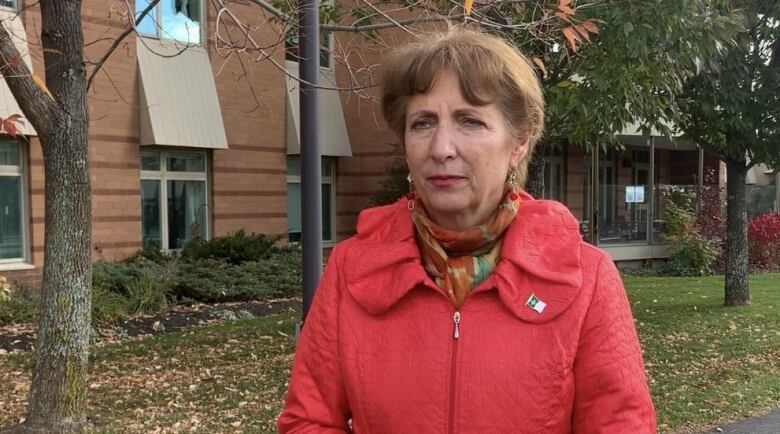Northern Ontario hospitals more reliant on expensive agency nurses, says auditor general
In the last five years the number of agency nurses at northern hospitals increased by 25 times

Northern Ontario hospitals are more reliant on agency nurses than in other parts of the province, according to the auditor general's annual report, which was released on Dec. 6.
"While these nurses fill important gaps, this comes at a much higher cost," said Ontario's acting Auditor General Nick Stavropoulos, in a press release.
"The province needs to ensure better access to appropriate and equitable levels of care for people in northern communities."

David McNeil, the president and CEO of Health Sciences North in Sudbury, said agency nurses cost the hospital about twice as much as full-time nurses who are on staff.
"So of course that would have a huge impact on our operating budgets as do the staffing incentives when we're paying things like double-time to make sure we have coverage on our nursing shifts, in particular," he said.
McNeil said the hospital has 1,400 full-time nurses on staff, and is currently using 16 full-time agency nurses to fill service gaps.
"It has a significant impact on the cost of care in the millions of dollars," McNeil said.
Stavropoulos said in his report that from 2018/19 to 2022/23 the use of agency nurses at northern Ontario hospitals increased by 25 times. In the rest of the province that increase was two and a half times during the same period.

NDP health critic France Glinas said it's private companies that hire the nurses that benefit the most from more agency nurses working at hospitals.
"It is really expensive for hospitals to do this and the nurse at the end of the day doesn't get that much money," she said.
"But the agency is making millions and millions of dollars off of that situation."
Dedicated strategy for northern hospitals
In addition to a greater reliance on agency nurses at northern hospitals, the auditor general's report also said the province needs a dedicated strategy for northern hospitals, which face more significant challenges than those in southern Ontario.
Those challenges include more frequent emergency department closures at smaller hospitals, due to low staffing levels, and high numbers of alternate level of care (ALC) patients.
An ALC patient is someone occupying a hospital bed while they wait to be transferred to long-term care or home care, which would be more appropriate for their needs.
The audit found more than 330 ALC patients occupying northern Ontario hospital beds.
McNeil said ALC patients occupy anywhere from 24 to 35 per cent of hospital beds at Health Sciences North.
"Today we have 130 ALC patients occupying our beds with 58 of those waiting for long-term care," he said.
McNeil added the problem is much worse today than it was five years ago.
He said a dedicated strategy from the province for northern hospitals could help address the issue.
Cost of travel for health care
For patients from northern Ontario who travel to larger centres, such as Toronto and Ottawa, for specialized medical care, the auditor general's report noted the Northern Health Travel Grant program's mileage rate of 41 cents per kilometre hasn't been updated since 2007.
The report said the rate is well below the 2023 rate of 68 cents per kilometre the Canada Revenue Agency has set for business travel.
"The barriers to care are real," Glinas said.
"People in northern Ontario who decide to forego access to care because they cannot afford to go down south are increasing exponentially."
With files from Kate Rutherford












_(720p).jpg)


 OFFICIAL HD MUSIC VIDEO.jpg)
.jpg)



























































































